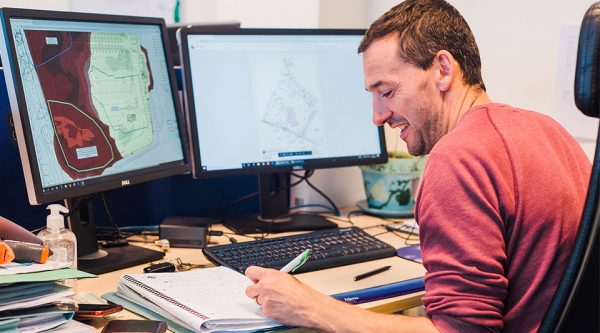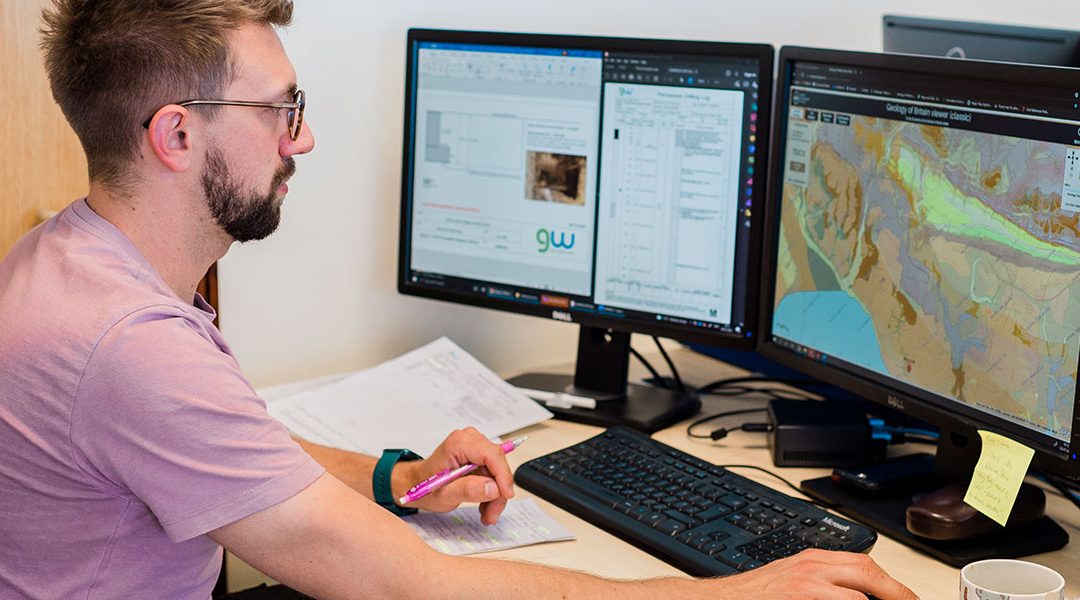Leave the specialisms to the specialists
Geoenvironmental • Geotechnical • Industry matters
 Ground & Water Director Fran Williams asks, in the world of multidisciplinary service provision how do you decide when a service, is a service too far?
Ground & Water Director Fran Williams asks, in the world of multidisciplinary service provision how do you decide when a service, is a service too far?
Those of you who have a canine animal companion – as celebrity vet Prof. Noel Fitzpatrick likes to call them (dog for short) – will know that a visit to the local pet superstore, isn’t just about buying a toy, food or some treats. Many of these businesses now have an in-house vet, pet advice services covering everything from travel advice to breeding, pet insurance provision and in-house pet grooming services. While there is a lot to be said for the one-stop approach, our local dog groomer says she gets no-end of clients coming to her following a disappointing experience at a superstore.
Becoming an expert dog groomer requires specialist training, years of experience; plus a ton of patience and empathy… And she reckons that’s just for dealing with her clients’ humans.

A growing trend
As an independent geotechnical and geoenvironmental engineering consultancy we have had similar experiences with clients who have been dissatisfied with Site Investigation reports prepared by ‘others’.
Over the last 12 months, given the economic climate, we have noticed several multi-disciplinary construction consultancies adding geotechnical engineering to their portfolios. Many of these consultancies have multi-regional or national coverage, work on major private and public sector projects and already have a list of services as long as your backhoe.
There are a number of very good reasons why keeping highly specialist disciplines, provided by independent consultancies – suitably experienced and qualified in their niche field of geology – separate, might get you better results and save you a few quid in the process.
For me it boils down to four key points
- Flexibility: Independent consultants provide a level of flexibility that larger consulting firms often struggle to match. Companies value this flexibility because it allows them to tap into specialised skills when needed, without committing to long-term contracts. In today’s fast-paced business environment, where agility is crucial, independent consultants can adapt quickly to changing needs.
One of our experienced engineers who has worked in both camps said within large multidisciplinary consultancies “you get a lot of duplicated investigations… Because it’s worked before!”
Site specific and thorough ground and contaminated land investigations are the key to getting out the ground in the most time and cost-efficient way.
You can read a case study about this HERE
- Price: Cost-effectiveness is another significant factor. As organisations seek to manage expenses in the face of heightened competition, independent consultants often offer competitive rates. While some of the multidisciplinary consultancies do have their own in-house geotechnical engineers, they also have shareholders and dividends to think about. Many don’t have their own teams so they project manage and sub-contract the work. As they say business is business, so are you paying the true price for the Site Investigation(s)?
Learn how we individually tailor cost effective solutions for our clients HERE
- Quality: Organisations frequently find that independent consultants deliver high-quality work. Many of these professionals have honed their skills at top consulting firms before venturing out on their own. Independents live or die by the quality of their work and direct interaction with the client. It’s about providing a personal service.
The case study HERE illustrates the importance of a quality Site Investigation.
- Ease and Speed: Independent consultants can swiftly take up contracts due to their self-reliance. They don’t face the bureaucratic layers that often slow down larger consulting firms. For clients, this translates to quicker project initiation and execution.
Read about how our rapid response gets client’s project moving HERE

Going the extra mile to save you money
My main point here is that an independent geotechnical and contaminated land consultancy has to stay agile, competent, competitive and go above and beyond (offer quality) otherwise it won’t survive.
This insight and operational competitiveness is required to win and retain work.
I totally understand that a client may see the advantage of a single point of contact for the project, with a Project Manager pulling it all together. However, Ground & Water sees the “Design by Collaboration” approach, working with other independents, as a bigger positive. This approach is about continually asking good questions of each other, based on coming at a project from a range of professional angles and experiences, so that as independent parties we can test each other’s conclusions, to get the very best for the clients.
So back to the question of, ‘when is a service a service too far?’ In our view it is when the service is not delivering the very best result for the customer. And as we have demonstrated in recent case studies, for a large residential development an overly conservative report compiled from a less than thorough Site Investigation could have ended up costing the client £00,000s in unnecessary expense.
